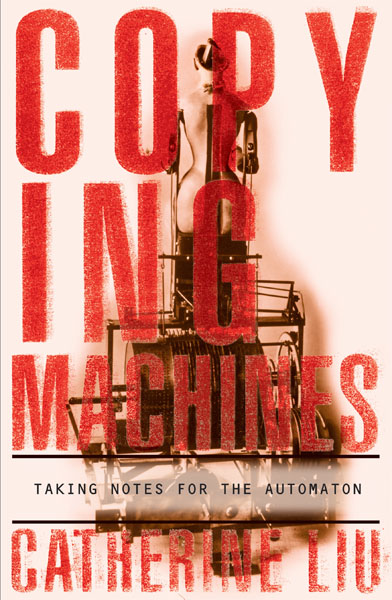Jacques Rancière: Mute Speech: Literature, Critical Theory, and Politics (1998–) [ES, EN]
Filed under book | Tags: · art history, critical theory, history, history of literature, literary criticism, literature, philosophy, poetry, politics

“Jacques Rancière has continually unsettled political discourse, particularly through his questioning of aesthetic “distributions of the sensible,” which configure the limits of what can be seen and said. Widely recognized as a seminal work in Rancière’s corpus, the translation of which is long overdue, Mute Speech is an intellectual tour de force proposing a new framework for thinking about the history of art and literature. Rancière argues that our current notion of “literature” is a relatively recent creation, having first appeared in the wake of the French Revolution and with the rise of Romanticism. In its rejection of the system of representational hierarchies that had constituted belles-letters, “literature” is founded upon a radical equivalence in which all things are possible expressions of the life of a people. With an analysis reaching back to Plato, Aristotle, the German Romantics, Vico, and Cervantes and concluding with brilliant readings of Flaubert, Mallarmé, and Proust, Rancière demonstrates the uncontrollable democratic impulse lying at the heart of literature’s still-vital capacity for reinvention.”
First published in French as La Parole muette. Essai sur les contradictions de la littérature, Hachette Litteratures, 1998
English edition
Translated by James Swenson
Publisher Columbia University Press, 2011
New Directions in Critical Theory series
ISBN 0231151039, 9780231151030
194 pages
publisher (EN)
La palabra muda: ensayo sobre las contradicciones de la literatura (Spanish, trans. Cecilia González, 2009, 112 MB, added on 2014-3-6)
Mute Speech: Literature, Critical Theory, and Politics (English, trans. James Swenson, 2011)
Catherine Liu: Copying Machines: Taking Notes for the Automaton (2000)
Filed under book | Tags: · 1700s, automation, history of literature, literature, machine, media archeology, robotics

Anxieties about fixing the absolute difference between the human being and the mechanical replica, the automaton, are as old as the first appearance of the machine itself. Exploring these anxieties and the efforts they prompted, this book opens a window on one of the most significant, if subtle, ideological battles waged on behalf of the human against the machine since the Enlightenment—one that continues in the wake of technological and conceptual progress today.
A sustained examination of the automaton as early modern machine and as a curious ancestor of the twentieth-century robot, Copying Machines offers extended readings of mechanistic images in the eighteenth century through the prism of twentieth-century commentary. In readings of texts by Lafayette, Molière, Laclos, and La Bruyère—and in a chapter on the eighteenth-century inventor of automatons, Jacques Vaucanson—Catherine Liu provides a fascinating account of ways in which the automaton and the preindustrial machine haunt the imagination of ancien régime France and structure key moments of the canonical literature and criticism of the period.
Publisher University of Minnesota Press, 2000
ISBN 0816635021, 9780816635023
224 pages
Maurice Blanchot: The Space of Literature (1955–) [FR, EN, CZ, ES, RU]
Filed under book | Tags: · history of literature, literary theory, literature, writing

Maurice Blanchot, the eminent literary and cultural critic, has had a vast influence on contemporary French writers—among them Jean Paul Sartre and Jacques Derrida. From the 1930s through the present day, his writings have been shaping the international literary consciousness.
The Space of Literature, first published in France in 1955, is central to the development of Blanchot’s thought. In it he reflects on literature and the unique demand it makes upon our attention. Thus he explores the process of reading as well as the nature of artistic creativity, all the while considering the relation of the literary work to time, to history, and to death. This book consists not so much in the application of a critical method or the demonstration of a theory of literature as in a patiently deliberate meditation upon the literary experience, informed most notably by studies of Mallarmé, Kafka, Rilke, and Hölderlin. Blanchot’s discussions of those writers are among the finest in any language.
L’espace littéraire
Publisher Gallimard, Paris, 1955
ISBN 2070324753
295 pages
English edition
Translated, with an Introduction, by Ann Smock
Publisher University of Nebraska Press, 1983
ISBN 080321166X
280 pages
publisher (EN)
google books (EN)
L’espace littéraire (French, 1955, no OCR)
The Space of Literature (English, trans. Ann Smock, 1983)
Literární prostor (Czech, trans. Marie Kohoutová and Michal Pacvoň, 1999)
Le Espacio Literario (Spanish, trans. Vicky Palant and Jorge Jinkis, 2002, no OCR)
Prostranstvo literatury (Russian, trans. V.P. Bolshakov, et al., 2002, added 2014-12-6)

